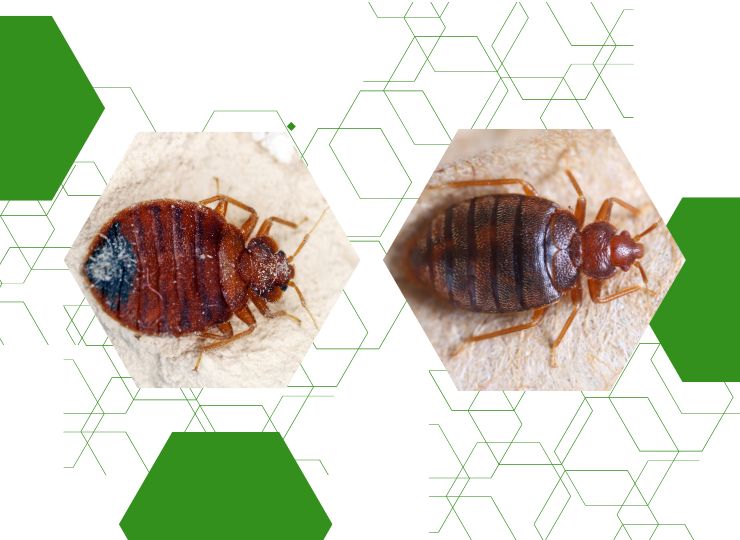Check Out the Different Types of Pest and Their Therapy Choices for Effective Management
The monitoring of insects in both domestic and farming setups requires a comprehensive understanding of the numerous types that can attack these atmospheres, in addition to the treatment alternatives available for reliable control. From family rats that position health and wellness dangers to garden insects that intimidate crop returns, each category demands a customized approach. Comprehending the nuances of pest behavior and the matching remedies is important; however, the inquiry remains: what are one of the most effective methods that not just deal with existing problems but likewise prevent future occurrences?

Common Household Pests
Although home insects can vary considerably in type and behavior, many share common qualities that make them a hassle. Common household parasites consist of rats such as mice and rats, insects like cockroaches and ants, and periodic intruders such as spiders and flies. These bugs commonly prosper in atmospheres that supply very easy access to shelter, food, and water, making homes specifically at risk.
Rats, for example, are infamous for creating structural damage and spreading condition. They can munch via electric wires, possibly bring about fire dangers. Insects like cockroaches are not just troubling but can additionally activate allergic reactions and bronchial asthma in delicate individuals. Ants, while typically safe, can invade cooking areas, providing food sources uninviting.
Effective bug monitoring starts with prevention, which includes sealing access factors, keeping sanitation, and using proper storage space approaches for food. Understanding the habits and features of these common family bugs is important for effective monitoring and maintaining a healthy and balanced living setting.
Yard Parasites and Their Influence
Garden bugs posture a substantial hazard to the wellness and productivity of plants, with some quotes suggesting that they can trigger as much as 40% of crop losses in certain areas. These bugs, which consist of bugs such as beetles, caterpillars, and aphids, as well as nematodes, can inflict extreme damage by eating plant cells, leading to stunted development, reduced returns, and jeopardized high quality.
The influence of yard parasites prolongs beyond plain visual problems; they can interfere with ecological communities by modifying food cycle, affecting pollinators, and spreading out conditions amongst plants. Pests like the crawler mite can weaken plants, making them more at risk to fungal infections. In addition, intrusive types may outcompete native plants, causing biodiversity loss.
Integrated Parasite Management (IPM) methods, which combine biological control, cultural methods, and targeted chemical applications, can give sustainable remedies. By understanding the certain parasites and their behaviors, gardeners can carry out targeted treatments that not just shield their plants yet also advertise a healthier yard ecosystem.
Rodents: Identification and Dangers
Rodents prevail yard pests that can pose considerable threats to plant health and general community security. These tiny creatures, including varieties such as voles, rats, and mice, are frequently identified by their sharp incisor teeth and durable bodies. Their fur pigmentation differs widely, varying from gray to brownish, and they typically display a lengthy tail which aids in balance and dexterity.
The risks associated with rodent infestations are multifaceted. Rats are notorious for their role as vectors of various illness, consisting of hantavirus and leptospirosis, which can be transmitted to humans and animals.
Additionally, rodents can disrupt the natural balance of regional ecological communities by taking on native wildlife for sources. Their burrowing routines can bring about soil erosion and destabilization of plant origins. Consequently, More Help very early recognition and understanding of rodent habits and threats are important for efficient parasite management.
Reliable Therapy Techniques
When taking care of rodent infestations, utilizing reliable therapy approaches is essential for decreasing damage and health risks. A multi-faceted approach commonly yields the very best outcomes. Traps are a crucial element of rodent control. Snap catches and electronic traps give a quick and humane way to remove rodents, while glue traps can help check task degrees.
Secondly, bait terminals including rodenticides can be strategically placed in areas of high rodent activity. These terminals ought to be tamper-resistant to ensure the safety of non-target animals and children. It is essential to pick the proper bait kind, as rats can develop bait hostility if not transformed periodically.
Along with catches and bait, sealing entry points can dramatically reduce the opportunities of re-infestation. This involves inspecting and repairing spaces in wall surfaces, home windows, and doors.
Last but not least, specialist insect Resources control services can be valuable for extensive infestations. They possess the knowledge, tools, and products needed for efficient eradication and can create a customized monitoring strategy. By executing these treatment methods, homeowner can properly deal with rodent concerns and shield their health and building.
Preventative Actions and Tips

Preserving cleanliness is equally essential; ensure that food is kept in impermeable containers and without delay tidy up crumbs or spills. Routinely getting rid of rubbish and making sure that compost heap are taken care of correctly can hinder parasites from being brought in to your home.
Additionally, think about landscape design techniques that dissuade rodent habitation. Trim vegetation and maintain mulch away from the foundation of your home, as these can supply hiding spots for insects.
Conclusion
Reliable bug administration necessitates a detailed understanding of numerous parasite kinds and their specific treatment options. Inevitably, a positive position on pest administration cultivates a healthier environment, securing both agricultural and residential spaces from pest-related challenges.
Usual home insects include rats such as rats and mice, insects like cockroaches and ants, and periodic invaders such as crawlers and flies.Rats are common garden parasites that can pose substantial risks to plant health and general environment security. Very early recognition and understanding of rodent habits and risks are essential for effective parasite administration.
Efficient bug administration starts long prior to an invasion takes place, with proactive actions that can substantially minimize the chance of rodent entrance and habitation.Reliable insect management demands a comprehensive understanding of numerous pest services parasite kinds and their specific therapy options.